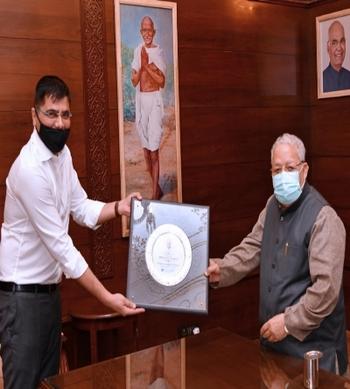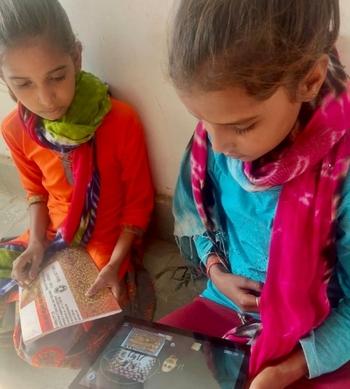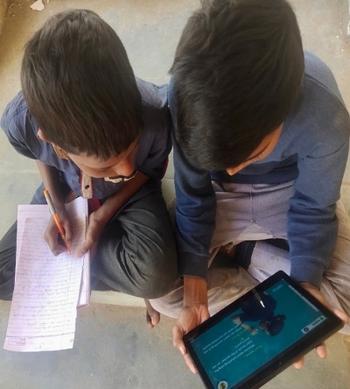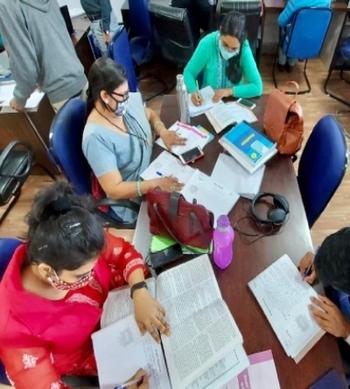CBSE Class 10 Social Science Syllabus 2022-2023
In class 10th CBSE, the production of social science is studied as a part of the social science curriculum. The aim of this course is to introduce students to the basic principles and methods of social science research, including the collection and analysis of data, the formulation of hypotheses, and the interpretation of results.
|
No |
Units |
|
1 |
India and the Contemporary World -II |
|
2 |
Contemporary India – II |
|
3 |
Democratic Politics -II |
|
4 |
Understanding Economic Development |
Skip to
You can download whole history syllabus from the below mentioned link.
Download whole Political Science syllabus from below mentioned link
Download whole Geography syllabus from below mentioned link
Unit 1: India and the Contemporary World – II | |
|
Themes |
Learning Objectives |
|
Section 1: Events and Processes: | |
|
1. The Rise of Nationalism in Europe: · The French Revolution and the Idea of · the Nation The Making of Nationalism in Europe· The Age of Revolutions: 1830-1848 · The Making of Germany and Italy · Visualizing the Nation · Nationalism and Imperialism |
· Enable the learners to identify and · comprehend the forms in which nationalism developed along with the formation of nation states in Europe in the post-1830 period. Establish the relationship and · bring out the difference between European nationalism and anticolonial nationalisms. Understand the way the idea of · nationalism emerged and led to the formation of nation states in Europe and elsewhere. |
|
2. Nationalism in India: · The First World War, Khilafat and Non-Cooperation · Differing Strands within the Movement · Towards Civil Disobedience · The Sense of Collective Belonging |
· Recognize the characteristics of · Indian nationalism through a case study of Non-Cooperation and Civil Disobedience Movement. Analyze the nature of the diverse · social movements of the time. Familiarize with the writings and · ideals of different political groups and individuals. · Appreciate the ideas promoting Pan Indian belongingness. |
|
Section 2: Livelihoods, Economies and Societies: | |
|
3. The Making of a Global World: · The Pre-modern world · The Nineteenth Century (1815-1914) · The Inter war Economy · Rebuilding a World Economy: The Post-War Era |
· Show that globalization has a long · history and point to the shifts within the process. Analyze the implication of · globalization for local economies. Discuss how globalization is experienced differently by different social groups. |
|
4. The Age of Industrialization: · Before the Industrial Revolution · Hand Labour and Steam Power · Industrialization in the Colonies · Factories Come Up · The Peculiarities of Industrial Growth · Market for Goods |
· Familiarize with the Pro- toIndustrial phase and Early –factory system. · Familiarize with the process of industrialization and its impact on labour class. · Enable them to understand industrialization in the colonies with reference to Textile industries. |
|
Section 3: Everyday Life, Culture and Politics | |
|
5. Print Culture and the Modern World: · The First Printed Books · Print Comes to Europe · The Print Revolution and its Impact · The Reading Mania · The Nineteenth Century · India and the World of Print · Religious Reform and Public Debates · New Forms of Publication · Print and Censorship· |
· Identify the link between print culture and the circulation of ideas. · Familiarize with pictures, cartoons, extracts from propaganda literature and newspaper debates on important events and issues in the past. · Understand that forms of writing have a specific history, and that they reflect historical changes within society and shape the forces of change. |
Unit 2: Contemporary India – II | |
|
Themes |
Learning Objectives |
|
1. Resources and Development: · Concept · Development of Resources · Resource Planning - Resource · Planning in India, Conservation of Resources Land Resources · Land Utilization · Land Use Pattern in India · Land Degradation and Conservation Measures · Soil as a Resource - Classification of Soils, Soil Erosion and Soil Conservation (excluding Box Information on State of India’s Environment) |
· Understand the value of resources and the need for their judicious utilization and conservation. |
|
2. Forest and Wildlife · Conservation of forest and wildlife in · India Types and distribution of forests and · wildlife resources Community and Conservation |
· Understand the importance of forests and wild life. · Understand the ability and knowledge of how forest and wildlife conservation and management relate to the economy and environment, both currently and in the future. |
|
3. Water Resources: · Water Scarcity and The Need for Water Conservation and Management · Multi-Purpose River Projects and Integrated Water Resources Management · Rainwater Harvesting |
· Comprehend the importance of water as a resource as well as develop awareness towards its judicious use and conservation. |
|
4. Agriculture: · Types of Farming – Primitive Subsistence, Intensive Subsistence, Commercial · Cropping Pattern – Major Crops, Food Crops other than Grains, Non Food Crops, Technological and Institutional Reforms · Food Security (excluding impact of globalization on agriculture) |
· Explain the importance of agriculture in national economy. Identify various types of farming· and discuss the various farming methods; describe the spatial distribution of major crops as well as understand the relationship between rainfall regimes and cropping pattern. Explain various government· policies for institutional as well as technological reforms since independence. |
|
5. Minerals and Energy Resources · What is a mineral? · Mode of occurrence of Minerals - Where are these minerals found? Ferrous Minerals, Non-Ferrous Minerals, Non Metallic Minerals, Rock Minerals · Conservation of Minerals · Energy Resources - Conventional Sources of Energy, Non-Conventional Sources of Energy · Conservation of Energy Resources |
· Identify different types of minerals and energy resources and places of their availability. · Feel the need for their judicious utilization. |
|
6. Manufacturing Industries: · Importance of Manufacturing - Industrial Location (excluding Industry Market Linkage), Agro based Industry (excluding Cotton Textiles, Jute Textiles, Sugar Industry), Mineral based Industries (excluding Iron Steel Industry, Cement Industry), Industrial Pollution and Environmental Degradation, Control of Environmental Degradation |
· Bring out the importance of industries in the national economy as well as understand the regional disparities which resulted due to concentration of industries in some areas. · Discuss the need for a planned industrial development and debate over the role of government towards sustainable development. |
|
7. Life Lines of National Economy: · Roadways · Railways · Pipelines · Waterways · Major Seaports · Airways · Communication · International Trade · Tourism as a Trade |
· Explain the importance of transport and communication in the ever-shrinking world. · Understand the role of trade and tourism in the economic development of a country. |
Unit 3: Democratic Politics – II | |
|
Themes |
Learning Objectives |
|
1. Power Sharing: · Belgium and Sri Lanka · Majoritarianism in Sri Lanka · Accommodation in Belgium · Why power sharing is desirable? · Forms of Power Sharing |
· Familiarize with the centrality of · power sharing in a democracy. Understand the working of spatial· and social power sharing mechanisms |
|
2. Federalism: What is Federalism?· What make India a Federal Country?· How is Federalism practiced?· Decentralization in India· |
· Analyze federal provisions and institutions. · Explain decentralization in rural and urban areas. |
|
4. Gender, Religion and Caste: · Gender and Politics - Public/Private division, Women’s political representation · Religion, Communalism and Politics –Communalism, Secular State (excluding image on page 46, 48, 49 of NCERT Textbook – Democratic Politics –II - reprinted edition 2021) · Caste and Politics - Caste inequalities, Caste in politics, Politics in caste |
· Identify and analyze the challenges posed by communalism to Indian democracy. · Recognize the enabling and disabling effects of caste and ethnicity in politics. · Develop a gender perspective on politics. |
|
6. Political Parties: · Why do we need Political Parties? –Meaning, Functions, Necessity · How many parties should we have? · National Parties · State Parties · Challenges to Political Parties · How can Parties be reformed? |
· Analyze party systems in democracies. · Introduction to major political parties, challenges faced by them and reforms in the country. |
|
7. Outcomes of Democracy: · How do we assess democracy’s outcomes? · Accountable, responsive and legitimate government · Economic growth and development · Reduction of inequality and poverty · Accommodation of social diversity · Dignity and freedom of the citizens |
· Evaluate the functioning of democracies in comparison to alternative forms of governments. · Understand the causes for continuation of democracy in India. · Distinguish between sources of strengths and weaknesses of Indian democracy. |
Unit 4: Understanding Economic Development | |
|
Themes |
Learning Objectives |
|
1. Development: · What Development Promises - Different People, Different Goals · Income and Other Goals · National Development · How to compare different countries or states? · Income and other criteria · Public Facilities · Sustainability of Development |
· Familiarize with concepts of macroeconomics. · Understand the rationale for overall human development in our country, which includes the rise of income, improvements in health and education rather than income. · Understand the importance of quality of life and sustainable development. |
|
2. Sectors of the Indian Economy: · Sectors of Economic Activities · Comparing the three sectors · Primary, Secondary and Tertiary Sectors in India · Division of sectors as organized and unorganized · Sectors in terms of ownership: Public and Private Sectors |
· Identify major employment generating sectors. · Reason out the government investment in different sectors of economy. |
|
3. Money and Credit: · Money as a medium of exchange · Modern forms of Money · Loan activities of Banks · Two different Credit situations · Terms of Credit · Formal Sector Credit in India · Self Help Groups for the Poor |
· Understand money as an economic concept. · Understand the role of financial institutions from the point of view of day-to- day life. |
|
4. Globalization and the Indian Economy: Production across countries· Interlinking production across countries· Foreign Trade and integration of· markets What is Globalization?· Factors that have enabled Globalization· World Trade Organization· Impact of Globalization in India· The Struggle for a fair Globalization· |
· Explain the working of the Global Economic phenomenon. |
|
5. Consumer Rights: · To be used only for Project Work |
· Gets familiarized with the rights and duties as a consumer; and legal measures available to protect from being exploited in markets. |
CONCLUSION
The production of social science involves a range of techniques and tools, including surveys, interviews, case studies, and statistical analysis. These methods are used to gather information about human behavior and social phenomena, which can then be used to develop theories and test hypotheses about how societies function.
FAQ
1.What are the important topics in social science class 10th CBSE?
ANS ; Important topics in social science class 10th CBSE include nationalism in India, the rise of Hitler and Nazism, the Cold War era, globalization, Indian economy, resources and development, and democracy and diversity.
2. How can I prepare for the social science class 10th CBSE exam?
ANS ; To prepare for the social science class 10th CBSE exam, you should make a study schedule, revise regularly, solve sample papers and previous year question papers, and take mock tests.
3.How can I score good marks in social science class 10th CBSE?
ANS :To score good marks in social science class 10th CBSE, you should focus on understanding the concepts, make notes, practice writing answers, and attempt all the questions in the exam.
4.What are the career options after studying social science class 10th CBSE?
ANS: After studying social science class 10th CBSE, you can pursue courses in fields like economics, political science, sociology, geography, and history. You can also opt for careers in civil services, journalism, law, social work, and research.
Download CBSE 10th social science syllabus pdf from here

MissionGyan Team
We aim to eradicate the education gap and serve equal and free education to all with the help of skilled and expert volunteers and teachers.





